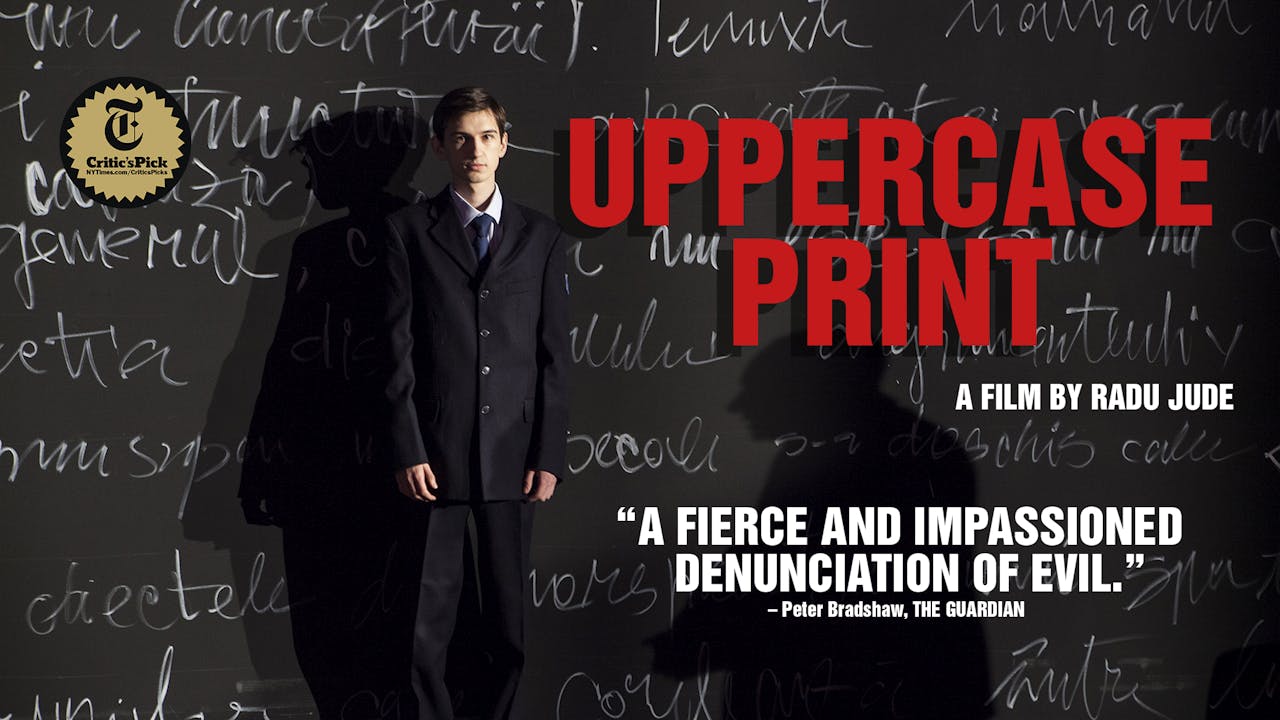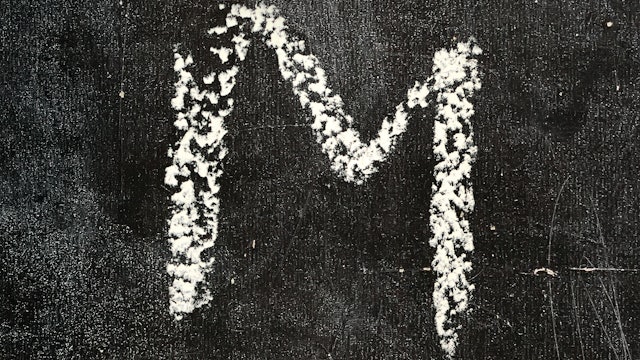UPPERCASE PRINT for Cinema Lamont
In 1981, chalk slogans written in uppercase letters started appearing in public spaces in the Romanian city of Botoşani. They demanded freedom, alluded to the democratic developments taking place in Romania’s socialist sister countries or simply called for improvements in the food supply. The culprit was Mugur Călinescu, a teenager who was still at school at the time and whose case is documented in the files of the Romanian secret police. Theatre director Gianina Cărbunariu created a documentary play based on this material.
Besides presenting the play, Radu Jude also uses archival footage from Romanian TV of the era. Cooking shows alternate with interrogations, transcripts of wiretapped phone calls with recommendations to exercise instead of taking sedatives. This dialectical montage creates an image of a dictatorial surveillance state, drawing on the authorized popular entertainment of the Ceaușescu regime in order to unmask it.
“Critic’s Pick!…A rousing, form-bending new feature by the Romanian auteur Radu Jude… Jude’s genius lies in his ability to turn [bureaucratic] words against themselves — to render them absurd through canny juxtapositions of text and image, documentary and fiction.” – Devika Girish, New York Times
“‘Uppercase Print’ expands the practice of nonfiction filmmaking into ingeniously imaginative dimensions… Jude, with his multiple dimensions of inquiry and imagination, poses philosophical questions about conscience and consciousness, media consumption and social order, that reach far beyond the case and era at hand to challenge the deceptions and delusions of ostensible present-day democracies.” – Richard Brody, The New Yorker
“It is a fierce and impassioned denunciation of evil, part of a continuing wave of Romanian filmmaking dealing with the Ceaușescu and post-Ceaușescu eras.” – Peter Bradshaw, The Guardian
-
UPPERCASE PRINT (dir. Radu Jude, Romania)
In 1981, chalk slogans written in uppercase letters started appearing in public spaces in the Romanian city of Botoşani. They demanded freedom, alluded to the democratic developments taking place in Romania’s socialist sister countries or simply called for improvements in the food supply. The cul...



